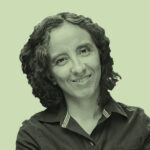When we think of high-risk jobs, it is normal for us to consider the work of a firefighter, a soldier or a police officer first; if we talk about works of scientific interest, we consider how risky can be the day-to-day handling of chemicals that are toxic substances, or perhaps the work of virologists, but a social anthropologist? A political theorist? A professor of gender studies?
Social disciplines are not fields of knowledge that we usually connect to risky work, but depending on the subject of study, as well as the place, culture, and government where research is conducted, academicians may also be in high-risk situations just by doing their jobs. Below I present three case studies of academicians who carry out their work in the face of constant threat and sometimes severe reprisals.
Gender studies and the threat of violent silencing
Marcia Tiburi is a professor of education and history of culture for the postgraduate program at Mackenzie Presbyterian University in Sao Paulo, Brazil; rather, she was, until recently.
After more than 200 death threats and the loss of her teaching post, Tiburi felt obliged to flee to Paris, where she lives in exile; her “fault” was to write and teach from a feminist perspective.
Brazil has become a very dangerous place for those advocating for social justice movements, even from the classrooms or academic studies. President Jair Bolsonaro has made an exemplary effort to fulfill his promise to liberate the country from the ideology of gender and political correctness. However, the national eagerness to follow his leadership does not distinguish between the eradication of what they consider to be dangerous ideas, those of safety and the right to life, and those who sustain them.
In Tiburi’s case, it was her vocal and strong defense of reproductive rights as well as the ideas in several of her books, including “¿Cómo conversar con un fascista?” (How to Talk to a Fascist?) and “Anthology of Women in Philosophy,” which exposed her to widespread violence by those who did not share her arguments and beliefs.
“Gender is a demonized word in Brazil; its use has been denied and restricted in all government documents since 2016,”
says Tiburi, lamenting how dangerous it has become to be an expert in gender studies in her country. Sadly, Brazil is not the only place where people who conduct gender studies live under threat. According to a special report published in September by the Censorship Index Journal, academicians in this field report a progressive increase in threats and violence not only against their freedom of expression but also against their physical integrity.
Tiburi’s situation is not unique. In Hungary, Prime Minister Zsolt Sémjen has led a campaign to eliminate gender studies in the universities, and he directly threatened Andréa Peto, a professor in this field at the Central European University of Budapest (CEU).
Sémjen did not merely attack Peto’s feminist position and the academics in her field; his comments bordered on anti-Semitism by declaring that he hoped to see the annihilation of her race. Peto reported receiving threats and hate mail through the CEU server, but the institution offered to provide her with a bodyguard, which Peto rejected. The threat to her security persists from Hungary’s highest sphere of power.
The risk of social research in authoritarian regimes
The exercise of anthropology is crucial not only to understand the history and details of past civilizations but also to understand what defines the current ones and to seek solutions to present problems. There are anthropologists who are dedicated to studying hotspots of living cultures; their sources are not books or cultural heritage, but people.
Kameel Ahmady was arrested in August this year for this reason. The Iranian government cited charges against him related to the protection of national security, but it refused to give further information about its apprehension of this British-Iranian citizen. Ahmady’s research was independent and touched on issues of political and cultural sensitivity such as child marriage, female mutilation, and out-of-marriage unions.
“Everything he did was transparent and public; he had never been arrested before, summoned by the authorities, or threatened,” declared Shafagh Rahmani, Ahmady’s wife. In October 2018, the academician won first place in the literature category of the Global Women’s Peace Foundation for his research work on children’s, minority, and gender issues.
When the subject matter of research goes against national political interests, being an academician can lead to a life sentence, such as in the case of Ilham Tohti.
In 2011, senior Chinese officials asked Tohti to give them his perspective on internal ethnic relations between the Uyghurs, the Chinese Muslim minority, and the Han, the majority ethnic group. Tohti produced extensive academic work in which he described the difficulties Uyghurs faced in the region.
The economist covered various areas of opportunity and included recommendations for improvement. Some of his suggestions included investing in minority populations, promoting Uyghurs to positions of real responsibility, establishing a framework of legal protections for regional ethnic autonomy, and supporting the creation of diverse communities.
The ruling party used his academic work to detect lines of thought that posed a threat to China’s social and political hierarchy; they significantly increased the arrests of lawyers, writers, and academicians.
In 2014, Tothi was arrested, prosecuted, and sentenced to life in prison on charges of separatism. The global academic community condemned the economist’s treatment, and to date, they continue to call for his release.
Political theory in times of repression
The area of academic theory might seem like an innocuous subject, but when current events are studied, and
the object of study exposes the government-citizen relationship through protest movements, the topic can make the authorities uncomfortable, especially when there is a repressive regime.
Kylie Moore-Gilbert worked as a middle Eastern policy professor for the Asian Institute at the University of Melbourne before being arrested and imprisoned in Evin Prison in October 2018, when she was sentenced to ten years in prison for espionage.
Moore-Gilbert researched and wrote extensively on revolutions and activism in the Middle East, focusing on Shia Islam, Bahraini politics and protest movements. Her colleagues report that the academician always treated these issues with extreme sensitivity and humility and took appropriate precautions for research and dissemination of topics that could be seen as complicated for the Iranian political and social order.
“I served on Kylie’s dissertation committee, she’s a wonderful person and a serious academic, she’s not a spy,” said David Malet, an assistant professor at the American University School of Public Affairs.
Australian Minister Marise Payne confirmed that she had spoken to Iranian Minister Mohammad Javad Zarif about the situation with Gilbert-Moore and two other imprisoned Australians. No progress has been reported on the case.
Gilbert-Moore’s case is another one of several academicians arrested in Iranian territory. Meimanat Hosseini-Chavoshifue, a population expert at the University of Melbourne, was arrested in December last year. She is currently free on bail, but without the possibility of leaving Iran. She is accused of trying to infiltrate national institutions.
Another case is that of Homa Hoodfar, who was interrogated for 112 days in Evin prison following her investigation into the daily lives of women in Iran.
Practicing the profession of an academic does not have to be a risk. But when the work of generating and sharing knowledge becomes a danger, this is a symptom of a serious social and political problem. It denotes the situation of a social and government order that is in favor of maintaining itself without plurality, diversity, or open public dialogue.
An academician at risk is like the canary in the mine of a civilization that is pointing the way to social retreat, authoritarianism, and repression. It is important to pay attention to these signals to detect and address problems that harm the social and political health of any country or region.
This article from Observatory of the Institute for the Future of Education may be shared under the terms of the license CC BY-NC-SA 4.0 
)
)


)